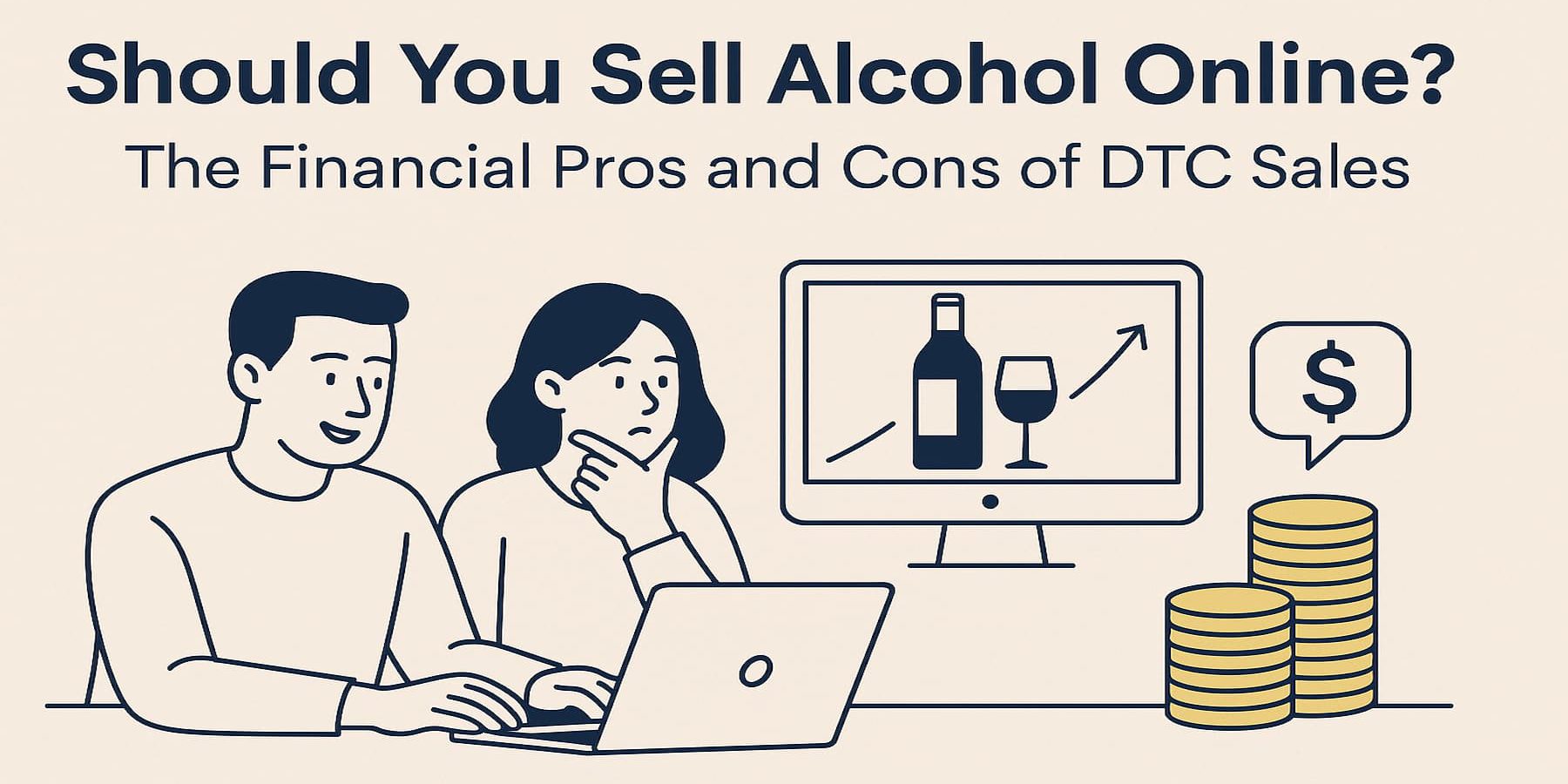Direct-to-consumer (DTC) alcohol sales are becoming a bigger part of the industry, especially as more people shop online. Whether you’re a winery, brewery, or distillery, you’ve likely thought about selling directly to your customers through your website or an e-commerce platform. But is it worth it?
Let’s break down the pros and cons of going DTC — and look at how to boost your online sales while attracting the next generation of customers.
The Pros of Selling Alcohol Online
- Better Margins
Selling directly to consumers means you skip the middlemen — no distributors, no retailers. That means more profit per bottle or can. - More Control Over Your Brand
When you sell online, you get to tell your story, your way. From packaging to customer experience, everything is in your hands. - Customer Data = Smarter Selling
DTC gives you access to valuable customer data. You can see what people are buying, when they’re buying it, and what they like. With that info, you can recommend new products, send targeted emails, and personalise their shopping experience. - Build Customer Loyalty
Online channels make it easier to connect directly with customers. That connection helps you build long-term relationships — and repeat buyers.
The Cons of Selling Alcohol Online
- Shipping Laws Are Complicated
Every country and indeed sometimes every state within a country has its own alcohol shipping laws, and they change often. You may need multiple licenses and must follow strict age verification rules. - High Shipping Costs
Alcohol is heavy and fragile. Shipping it safely (and legally) isn’t cheap, which can eat into your margins — or make your prices less competitive. - Logistics
Storing, packing, and shipping orders yourself can be very time-consuming.
How to Boost Online Sales and Reach a New Audience
Younger consumers — especially Millennials and Gen Z — shop differently. They value convenience, authenticity, and digital connection. Here’s how to reach them:
- Go All-In on Personalisation
Use data to create tailored recommendations, custom bundles, and subscription options. A younger audience appreciates when a brand “gets” them. - Use Social Media to Tell Your Story
Short videos, behind-the-scenes content, and influencer partnerships can help you connect with younger drinkers who want to know who’s behind the product. - Make Mobile Easy
Many people shop from their phones. Make sure your online store is mobile-friendly, fast, and easy to navigate. - Offer Loyalty Programs and Subscriptions
- Partner With the Right Platforms
DTC e-commerce platforms are making it easier to manage compliance, logistics, and customer experience — especially for small producers.
Looking Ahead: The Future of DTC Alcohol Sales
According to industry reports, DTC alcohol sales will continue growing through 2025, with more changes expected around shipping laws and consumer expectations. The brands that succeed will be the ones that embrace technology, offer a personalised experience, and adapt quickly to what their customers want. Whether selling online to direct to consumers makes good business and financial sense for your business is worth assessing.
If it does make sense and you are ready to sell online, start with a clear strategy: know your audience, invest in the right tools, and stay on top of compliance. Done right, DTC can be a powerful way to grow your business and build lasting customer relationships.






